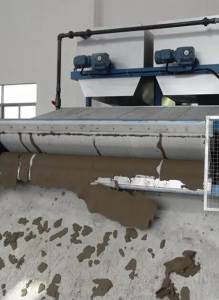
Sludge dewatering is a crucial step in wastewater treatment, significantly reducing the volume and weight of wastewater sludge before disposal or further processing. Our comprehensive sludge dewatering solutions offer efficient and environmentally responsible methods to manage your sludge, minimizing costs and maximizing operational efficiency.
The Problem: Untreated sludge presents significant challenges:
Our Solution: We offer a range of tailored sludge dewatering solutions to address these challenges, including:
1. Belt Filter Presses:
2. Centrifuges:
3. Chamber Filter Presses:
4. Screw Presses:
Choosing the Right Solution: The optimal sludge dewatering technology depends on several factors, including:
Our Services: Beyond providing top-quality equipment, we offer:
Contact us today to discuss your sludge dewatering needs and discover how we can help you optimize your wastewater treatment process.